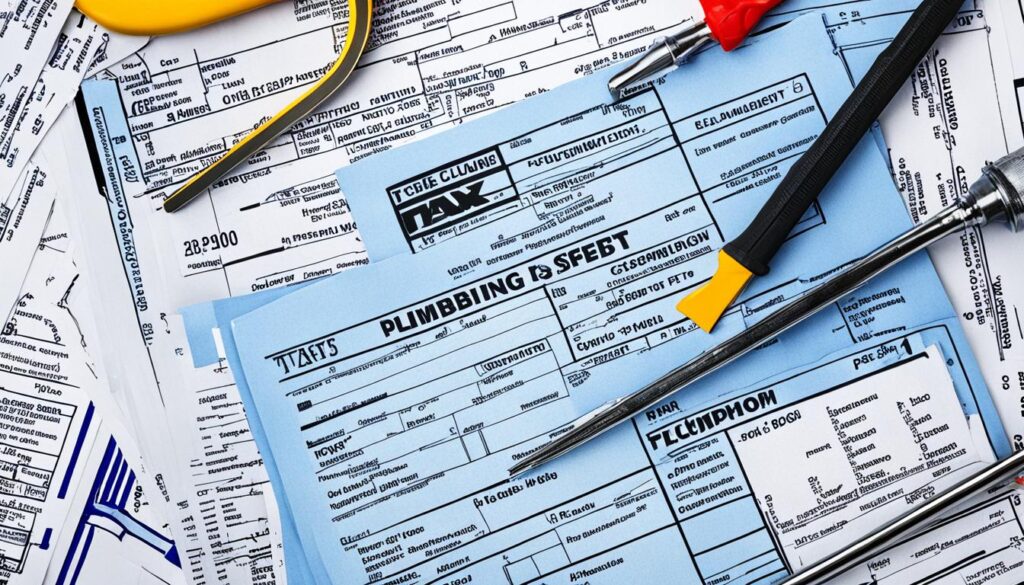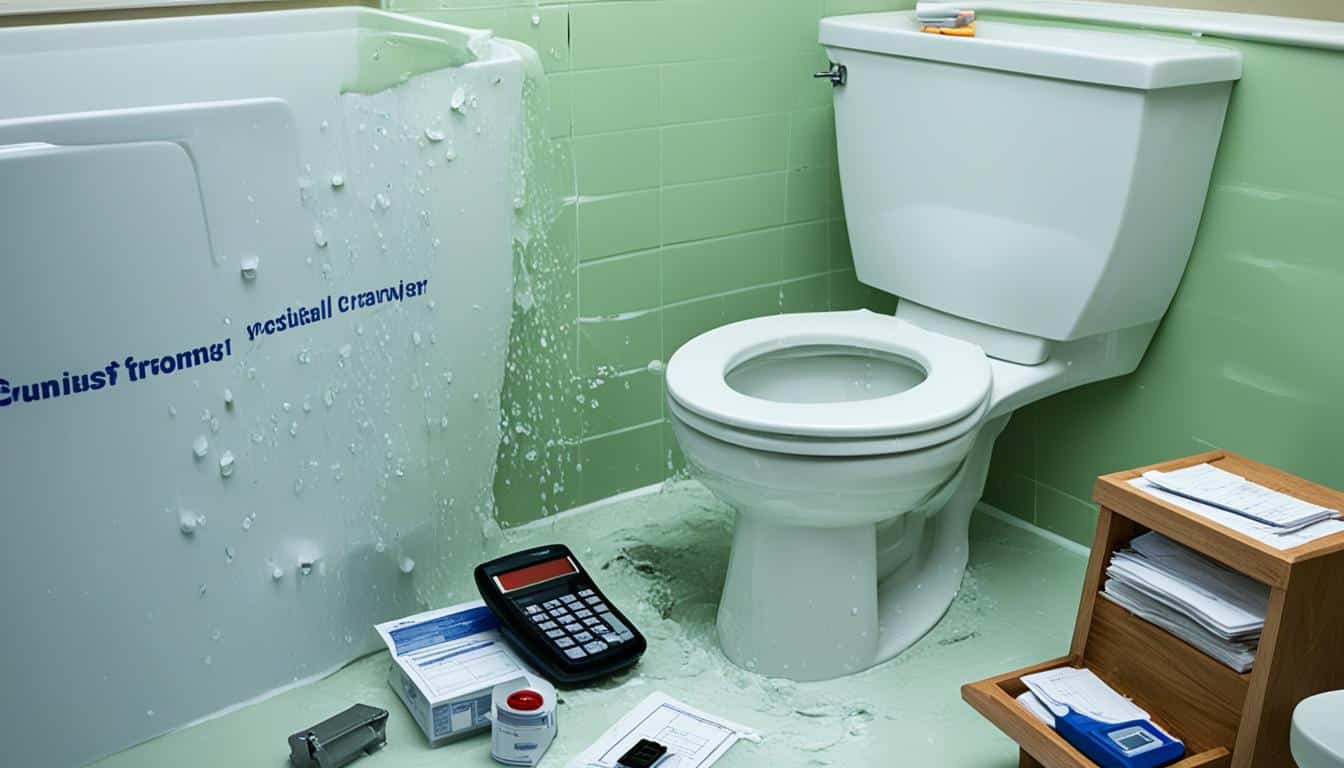Tax deductions can seem like a hard nut to crack, just like a plumbing blueprint. To figure out if and how plumbing costs can lower your taxes, knowing the IRS rules is key. Experts say some plumbing jobs might qualify as direct or indirect home office expenses. If the job is just for the home office, you could deduct it all. But, if it helps the whole house, like installing a new water heater, only a part is deductible.
Personal areas in your home usually don’t count for deductions. But, it’s worth looking into. You might be able to claim things like a portion of insurance, the business part of utilities and upkeep, and even phone lines. Remember, to claim these deductions, the space must only be for business without exception.
Key Takeaways
- Certain plumbing expenses may qualify for IRS plumbing deductions.
- Direct expenses related to a home office can be fully deductible.
- Indirect expenses, such as whole-house benefits, may only be partially deductible.
- Personal plumbing costs are generally not deductible.
- To claim deductions, the space must be used regularly and exclusively for business.
- Understanding what qualifies can help maximize tax benefits for plumbing repairs.
Understanding Tax-Deductible Plumbing Costs
Figuring out tax-deductible plumbing costs is tricky. It’s like clearing a blocked drain. But understanding what you can claim might save you money.
Definition of Plumbing Expenses
Plumbing expenses include costs for installing, fixing, and upgrading plumbing at home. Knowing what these costs are is key to getting a tax break. Even small spending items can help lower your tax bill if you place them in the right category.
Qualifying Plumbing Expenses for Homeowners
Not sure if your plumbing job will count for a tax break? Major repairs and basic upkeep usually don’t count. But, upgrades that boost your home’s worth or use are usually allowed. For instance, setting up a green water heater could qualify.

Plumbing Repairs vs. Plumbing Improvements
The difference between repairs and improvements is important. Fixing a leak or a broken pipe is usually not deductible. Yet, adding something new that raises your home’s value, like an energy-saving boiler, can be deducted. Knowing this can help prevent any unnecessary tax claim effort.
| Plumbing Type | Examples | Tax Deductibility |
|---|---|---|
| Minor Repairs | Fixing leaks, replacing washers | Typically Non-Deductible |
| Major Upgrades | New water heater, eco-friendly piping | Potentially Deductible |
| Routine Maintenance | Annual inspection | Non-Deductible |
| Capital Improvements | Adding a new bathroom | Often Deductible |
Clear what plumbing costs you can claim is key. Stay organized, keep records, and if you’re unsure, get advice. This way, you can maximize your deductions.
Are Plumbing Expenses Tax Deductible?
Deducting plumbing costs varies based on your property’s use. You can save money by meeting specific requirements. These plumbing tax write-offs can be useful in many situations.
Home Office and Business Use
For those using part of their home solely for business, it’s easier to deduct plumbing work. For example, if you redo a bathroom where you meet clients, that cost might be a write-off. Then, you can split home expenses like water bills, based on the area used for work.
Rental Properties and Plumbing Deductions
If you have rental units, you have more plumbing tax deduction opportunities. The cost of repairs that keep the place ready for tenants can be a deduction right away. This includes anything from fixing leaks to big upgrades.
Plumbing Upgrades and Energy Efficiency
Choosing eco-friendly plumbing can also change how you get deductions. Install things like solar water heaters or low-water-use fixtures. These not only help the planet but may give you tax credits. Timing these upgrades right could mean even more savings.
Conclusion
Your journey through plumbing tax deductions can be as satisfying as fixing a leak. It’s all about making your expenses work for you. The IRS distinguishes between mere repairs and meaningful improvements. This difference affects your chance for tax benefits.
If you invest in your home office or rental property, some plumbing upgrades can bring tax perks. But, the real trick is keeping good records. You must understand the IRS rules to make the most of your plumbing expenses. This involves knowing what counts as an improvement and not just a simple repair.
Consulting with a tax expert is a smart move in this situation. They understand the ins and outs of claiming tax benefits for plumbing. With their help, you can ensure your investment pays off on your taxes. The goal is to benefit from your plumbing work, not just for your property but also on your tax return. Think about how your property is used and consider energy-efficient upgrades. This strategy will be good for your finances.








